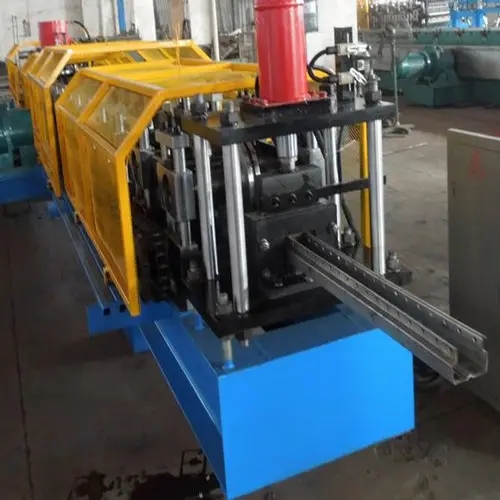
The Benefits of Sandwich Roofing Roll Forming Machines
In the evolving landscape of construction and manufacturing, the demand for efficient, cost-effective, and durable building materials has surged significantly. One of the innovative solutions that has emerged is the sandwich roofing roll forming machine, which has transformed how roofing materials are manufactured. This article delves into the features and benefits of sandwich roofing roll forming machines, illustrating their importance in modern construction.
Sandwich roofing panels consist of two outer layers, usually made of steel or aluminum, with a core material often made from polyurethane, polystyrene, or mineral wool
. This combination provides exceptional thermal insulation, structural integrity, and aesthetic appeal. The sandwich roofing roll forming machine plays a crucial role in the production of these panels, enabling manufacturers to create custom profiles that meet specific building requirements.One of the primary advantages of using a sandwich roofing roll forming machine is efficiency. Traditional methods of roofing panel production can be time-consuming and labor-intensive. In contrast, roll forming machines automate the process, significantly reducing production time and labor costs. The machines continuously feed raw materials, shaping them into desired forms with precision and speed. This automation allows manufacturers to meet increasing market demands without sacrificing quality.
Moreover, these machines provide unmatched consistency in producing sandwich panels. With advanced technology and programmable controls, manufacturers can achieve uniform thickness and dimensions across all panels. This consistency not only enhances the aesthetic appeal of the finished product but also ensures that each panel meets stringent quality standards. As a result, construction projects can proceed smoothly, with fewer delays caused by material inconsistencies.

The versatility of sandwich roofing roll forming machines is another key benefit. They can be customized to produce a wide variety of panel profiles, suitable for different architectural styles and applications. Whether it’s for residential, commercial, or industrial buildings, these machines can adjust to specific customer requirements, making them invaluable in a competitive market. Additionally, they can produce panels in various colors and finishes, allowing for greater design flexibility.
Insulation properties of sandwich panels are also noteworthy. The core materials used in sandwich panels provide superior thermal performance, contributing to energy efficiency in buildings. This is particularly important in regions where climate control is essential. By reducing the reliance on heating and cooling systems, sandwich panels can lead to significant energy savings for building owners.
Sustainability is another critical aspect of sandwich roofing systems. Many modern machines are designed with eco-friendly practices in mind. The production process minimizes waste by optimizing the use of raw materials. Furthermore, the durability of sandwich panels reduces the frequency of replacements, contributing to a greener construction model. Many of the materials used can also be recycled, aligning with the growing trend toward sustainable building practices.
In conclusion, sandwich roofing roll forming machines represent a significant advancement in roofing material production. Their ability to enhance efficiency, consistency, versatility, and sustainability makes them essential in the modern construction industry. As architects and builders continue to seek innovative solutions, the role of these machines will undoubtedly become even more pivotal in shaping the future of roofing systems. Investing in high-quality sandwich roofing roll forming equipment can lead to increased productivity, improved product quality, and ultimately, greater customer satisfaction.